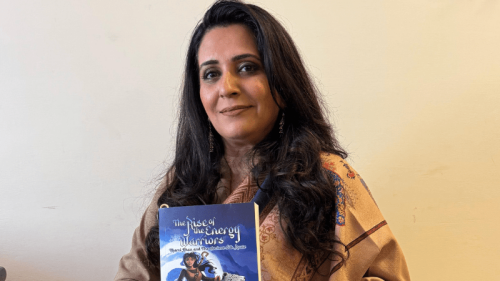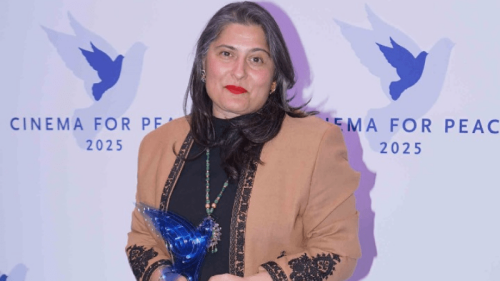Sixty-seven years have passed since the creation of Pakistan. Its intellectuals, societal leaders and political activists continue to debate Pakistan’s state identity, especially its relationship with Islam whether it was created as a homeland for the Muslims of British India or as an ideal Islamic state which would strictly implement the classical Islamic state and legal system and enforce the societal values of that period in letter and spirit. Alternatively, it would be a modern constitutional democratic state that seeks ethical inspirations from the teachings and principles of Islam. It may identify with Islam but the state will not use its apparatus to enforce a particular interpretation of Islam. It will “encourage” the Muslims to lead their lives in accordance with its principles rather then become the main “enforcer” of Islam on fundamentalist lines in a society comprising the followers of different Islamic “Fiqh” or “Maslaks.”
Some writers and intellectuals argue for a secular political system in Pakistan relying mainly on Quaid-i-Azam Muhammad Ali Jinnah’s address to the Constituent Assembly on August 11, 1947.
The Identity Debate: There are four features of the debate about the making of Pakistan and its identity.
1) The debate about Pakistan’s identity pertains mainly to the post-independence period. No doubt, in addition to the Congress, a number of Muslim leaders opposed the movement for the establishment of a separate state. The All India Muslim League did not give the details of the post-independence political framework except in broadly based terms. It was in the post-independence period that divergence in approaches of different political and religious groups became more pronounced. The Muslim League believed that the basic principles and teachings of Islam and modern democracy could be reconciled.
2) The acute political problems and repeated failure to create a consensus-based political order led some people to think if there were some foundational problems with the idea of Pakistan. There was an unnecessary delay in constitution making for a host of reasons that are beyond the scope of this article which caused instability, increased distrust among the competing political interests and revived ethnic and regional sentiments. This was mainly due to non-availability of a participatory political framework and an emphasis on highly centralized political and administrative management. The repeated military intervention in politics did not create a viable political order. Though the political leaders vowed to support representative governance, constitutionalism, the rule of law and civil and political rights, they violated these principles for pursuing their political agendas.
3) Controversy about Pakistan’s identity increased during the rule of general Zia-ul-Haq (1977-1988) who used the state apparatus to enforce an Islamic order on fundamentalist and conservative lines. This changed the role of the state from encouraging the Muslims to follow Islam, to enforcing Islam with the full might of the state. It was during this period that the movement for the establishment of Pakistan was described as a movement for creating a Sharia-based Islamic state. Some books and articles published in the late 1980s and the early 1990s projected Quaid-i-Azam Muhammad Ali as a religious person who wanted to create a puritanical Islamic state and society.
4) The identity debate since the days of the Zia-rule has relied heavily on the slogans raised mainly in the Punjab for the 1946 provincial elections. Some such slogans were raised in NWFP (Khyber-Pakhtunkhwa) for the 1946 elections and especially the 1947 referendum. These slogans were given preference by the Zia’s military regime and its political allies over the resolutions of the All India Muslim League because the latter had emphasized Islam less than the slogan and posters for the 1946 provincial elections in the Punjab. For example, since General Zia’s time the most often invoked slogan to describe why Pakistan was created has been: “Pakistan Ka Matlab Kia….” This slogan was used by the All India Muslim League in 1945-47 in the Punjab and NWFP. There is no evidence available to show if this was used frequently in Muslim-minority provinces. During Zia’s time the ideology of Pakistan was often explained with reference to this slogan, mainly by the Punjab-based military regime-oriented intellectuals. The Quaid’s statements were reinterpreted to justify the Zia regime’s notion of Islamic system. All this has caused much confusion about the precise articulation of Pakistan’s identity.
Political Struggle: The politico-cultural identity of the Muslims in British India was shaped by a number of factors: Islamic principles and teaching and especially its aspect of civilization, nostalgia of Muslim rule in India and a search for a rightful role for the Muslim community in the state system introduced by the British, and their political experience that created a strong fear of being overwhelmed by an unsympathetic majority.
The protection and advancement of the Muslim identity, rights and interests became the main concern of the Muslim leaders, especially the All India Muslim League, established in December 1906. They adopted different political strategies for the realization of the above goal, going back to the days of Sir Syed Ahmad Khan. The major strategies of the Muslims included:
1.) Seek modern western education and avoid active politics (Post-1857 Aligarh Educational Movement).
2.) The demand for separate electorate (1906) and reservation of seats and the setting up of a separate political party in December 1906, the All India Muslim League.
3.) Constitutional arrangements should incorporate safeguards for the protection of the separate identity and interests of the Muslims. (The Lucknow Pact with the Congress, 1916, and Jinnah’s Fourteen Points (1929) in response to the Nehru Report (1928).
4.) Federalism with autonomy for provinces (late 1920s, and later the Roundtable Conferences 1930-32).
5.) Allama Muhammad Iqbal’s presidential address to the Allahabad session (1930) of the All India Muslim League emphasized the centrality of Islam in the distinct political and cultural profile of the Muslims. He talked about the establishment of a Muslim political authority in the Muslim majority areas of northwest India to secure their future.
6.) Independent and separate state (1940 onwards).
Quaid-i-Azam was concerned about the political conditions of the Muslims both in Muslim majority and Muslim minority provinces of British India. The notion of “electoral weightage” was formally floated in 1916 for providing slightly more representation than their population to the Muslims in the provincial assemblies in Muslim minority provinces. A similar weightage in representation was offered to non-Muslims in Muslim majority provinces. The Muslim demand for reservation of one-third seats for the Muslims in the central legislature and a similar representation for the Muslims in government jobs was meant to secure their rights and interests.
The All India Muslim League and Jinnah also, wanted to improve the political conditions of the Muslims in Muslim majority provinces. The demand for separation of Sindh from Bombay was repeatedly made until Sindh became a full-province in 1935. There were repeated demands for constitutional and political reforms in Balochistan and NWFP for bringing them at par with other provinces.
These demands were meant to secure the Muslims identity, rights and interests within the framework of a federal model that fully recognized and accommodated a separate Muslim identity. However, the political experience of the Muslim League elite, especially in the 1930s convinced them that their cultural and political future may not be secure in a united India because the Congress Party leadership adopted a dismissive attitude towards the Muslim League leadership and their political demands.
Alternate Nationalism: The demand for the establishment of Pakistan represented a new nationalism that challenged the one-nation secular India nationalism advocated by the Congress Party. The alternate nationalism needed a new basis and political discourse. This basis was provided by the notion of distinct Muslim socio-cultural identity and historical and civilizational heritage. Jinnah who returned to India in 1934 recognized the changed political environment. He employed Islamic idiom and historical references in his political discourse for national identity formation and mobilization of the Muslims. He worked with greater enthusiasm for transforming the Muslims of British India from an important minority to a nation.
Jinnah’s political struggle for the making of Pakistan could not be described as a secular movement because he invoked Islamic history, culture and civilization for Muslim political identity formation and their political mobilization. He could not challenge the Congress Party by advocating a secular nationalism; nor could he justify his assertion that the Muslims of British India were a separate nation. However, given Jinnah’s intellectual and legal background and association with liberal politics he could not advocate a Sharia-based religious Islamic state as projected by the conservative Islamic clergy. He viewed Islam as a source of guidance and inspiration rather than a set of strict punitive, regulative and extractive codes.
Territorial Basis: The demand for the establishment of Pakistan had a territorial basis. The Muslims were in majority in five regions: NWFP, the Punjab, Balochistan, Sindh and Bengal. Four of these regions in the North-west were geographically contiguous. The territorial linkage of these regions strengthened the case for Pakistan. Jinnah and the All India Muslim League attached importance to performing in the 1946 provincial elections in these provinces. Its ability to turn the political table on rival Muslim- dominated parties in the Punjab and NWFP in 1946-47 as well as the electoral performance in Bengal and Sindh strengthened the position of the All India Muslim League. Had the Muslim majority regions been located in different parts of India with no territorial contiguity the demand for Pakistan would not have materialized in1947.
Another important feature of the idea of Pakistan was the emphasis on the protection of the rights and interests of religious minorities. It was known from the beginning that both India and Pakistan would contain religious minorities. All Muslims were not expected to migrate to Pakistani territory. Similarly, non-Muslims were expected to live in Pakistan. In fact, the Congress Party and the All India Muslim League did not envisage violence and population migration at such a large scale. All resolutions of the All India Muslim League since 1940 made categorical commitments for granting religious and cultural freedom to all religious minorities.
The writer is an independent political analyst and Professor Emeritus, Political Science, Punjab University, Lahore. He is recipient of Sitara-i-Imtiaz for academic excellence.















































